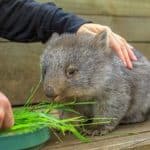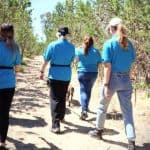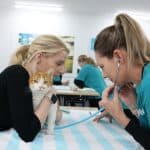Have you been thinking about a career rehabilitating and caring for wildlife? If the answer is YES, then you clicked on the right post. Nothing brings more joy than participating in the treatment of sick, orphaned, displaced or injured wildlife, standing by their side through rehabilitation, and eventually releasing them back into the bush. Wouldn’t you agree? The big question is, what would it take to find a job in wildlife care and rehabilitation in Australia? In this section, we set the ground for wildlife care enthusiasts by giving first hand knowledge on:
So let’s get started!
Why consider a career working in Wildlife Care and Rehabilitation?
There are countless reasons to dedicate your time to wildlife care, but perhaps the most powerful is the sense of purpose that comes from seeing an animal you’ve helped return to the wild. Imagine the moment a rehabilitated kangaroo hops back through the bush, a koala climbs effortlessly into a eucalyptus tree, or a tiny possum you once bottle-fed finally scurries away into the treetops.
Beyond the emotional rewards, this work plays a vital role in Australia’s conservation future. Our unique wildlife is under increasing pressure from environmental changes, climate events, and human impact, making the role of wildlife carers and rehabilitators more important than ever.
Here are just a few reasons to consider this career path:
High demand for trained carers
With more extreme weather events and natural disasters, wildlife organisations and sanctuaries are always looking for skilled, compassionate people who can provide care during critical times.
Support conservation and biodiversity
Every animal rehabilitated contributes to the preservation of Australia’s ecosystems and the balance of native species.
Be part of a passionate community
Wildlife care is a collaborative effort: carers, vets, rescuers and volunteers all work together to achieve the same goal: giving native animals a second chance.
A pathway to meaningful work
Whether you start as a volunteer or move into professional animal care or veterinary nursing, training in wildlife care can open the door to a lifelong, purpose-driven career.
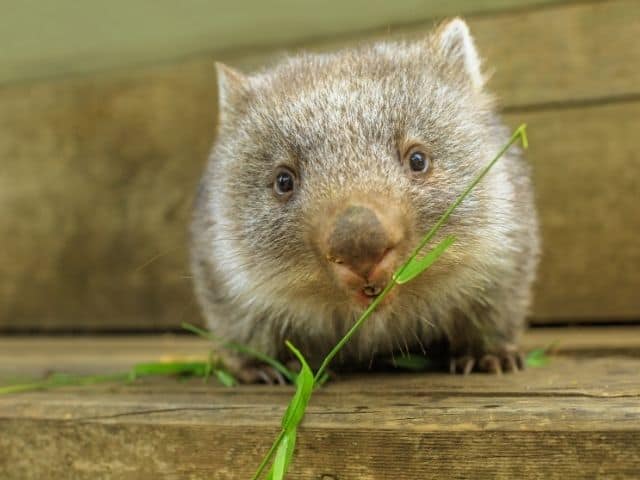
What careers and types of positions are available for Wildlife Carers and Rehabilitators?
Working with wildlife can secure a position in government agencies, zoos, humane societies and non-profit wildlife rehabilitation and conservation organisations. Below are some options you may want to explore as a wildlife carer or rehabilitator:
Animal attendant/carer
As a carer, you may be tasked with cleaning animal areas, preparing special diets, feeding, monitoring the health status and behaviour of animals and helping to hold them for medical procedures. Other assorted responsibilities may also include daily tasks like cleaning litter bins, laundry, washing food bowls and water dispensers, etc.
Veterinary nurse
Veterinary nurses have many responsibilities including assisting with administering medications, tube feeding, cleaning and dressing wounds and monitoring patients under anaesthesia. They also provide intensive nursing care for the animals which includes regular monitoring of the patient’s progress and vital signs, pain assessment and understanding their needs to reduce the psychological and physical stresses the animal is experiencing throughout the treatment period.
Veterinarian
In the area of wildlife care, the veterinarian’s role may include assessing, diagnosing, monitoring and treating animals and researching medical conditions that are affecting pets, livestock and other wildlife. Forms of treatment may include surgery, debriding and dressing of wounds, IV fluid therapy, medication including pain relief and other intensive care procedures.
Wildlife educators
People who work in educational centres may teach high school, VET and university students on wildlife conservation. Some topics covered would include conservation strategies, environmental biology, ecology, animal diseases, behaviour and more.
Forestry and conservation officer
If you would like to participate in the planning, development, implementation, and support of programmes that aid conservation and sustainable wildlife management, this position is for you.
Rescue coordinators
In this position, you will be tasked with researching the local ecology to devise an appropriate action plan to mitigate challenges, like overhunting or overfishing.
Groundskeepers
Groundskeepers’ duty of keeping the environment clean and aesthetically presentable plays a significant role in hastening animals’ recovery and eliminates chances of contracting new diseases.
Fundraising managers
Wildlife conservation attracts little to no returns; hence funds must be raised to afford animal housing, specialised feed, veterinary care, medication, trained staff and more. As a fund-raising manager, you will be responsible for attracting and reaching out to supporters, government bodies, high-value donors, trusts, companies, etc.
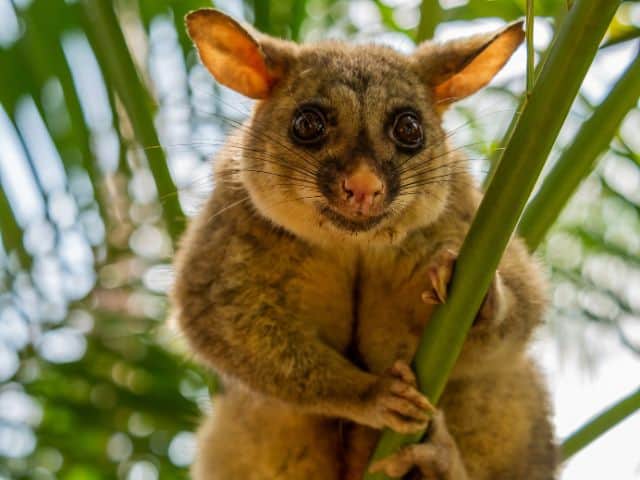
What does a Wildlife Carer’s role involve?
It may seem an ordinary job from the outlook, but wildlife caring needs sufficient training and experience because hand-rearing and rehabilitating animals relies on accurate knowledge and understanding of each species’ needs. It is an equally task-demanding and time-consuming role. Without training or experience, you will need a mentor to guide you until you master the game.
Wildlife carers must understand individual animal’s needs and meet them exhaustively before releasing them back into the bush. For instance, when dealing with an orphaned young animal, the carer must interact with the animal and be available constantly to tend to its psychological and physical needs until it recovers from the trauma. Above all, it is overly critical for wildlife carers to understand that it is not their place to domesticate the animals or hold them captives. Instead, they should focus on rehabilitating the animals and releasing them back to the wild upon recovery. This involves feeding the animals, providing a clean and safe shelter, keeping them warm or cool based on the weather and giving them much-needed attention.
What qualities are necessary for a Wildlife Carer?
Top personality traits for those working with wildlife include:
Strong work ethic and passion
Let’s face it; caring for wildlife isn’t a glamorous job as it can get dirty, attract long hours and can be confronting (e.g., suffering animals). You need to be a hard worker and have a deep passion for all types of animals.
Versatility and calmness
A wildlife carer must adapt quickly to various situations or environments because different animals and animal species exhibit different behaviours. You want to remain calm, especially around easily agitated animals, to create a rapport, for effortless care provision.
Patience and understanding
Caring for orphaned animals is not the easiest of tasks; they may require feeding every 3-4 hours and they may take up to an hour to feed each time as they could be injured, weak or stressed and will have to adapt to the “artificial” feeding methods being imposed on them. You will need to remain patient with them, putting yourself in their shoes.
Positivity and dedication
A wildlife carer must exhibit compassion and a positive attitude towards animals to put them at ease for a speedy recovery.
Resilience
Not all animals will survive. In spite of all your efforts in caring, nursing, feeding and tending to an injured or stressed wildlife animal, many of these animals will not survive due to several factors. You must come to terms with this difficult and sometimes frequent outcome and focus on the animals your time and care has saved.
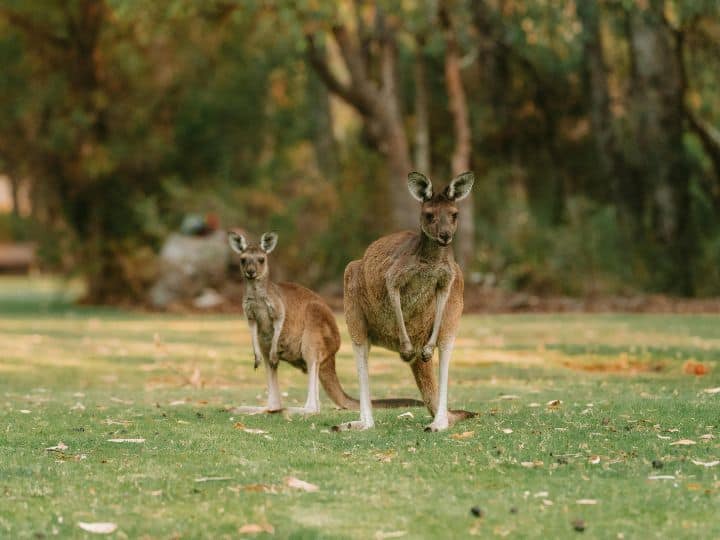
What steps should you take to get started in Wildlife Care?
Here’s how you can take the first steps toward a rewarding path in wildlife rehabilitation and care:
- Gain experience with animals, fish, birds and reptiles by volunteering at local wildlife rescues, shelters or sanctuaries.
- Create a network of people in wildlife care and rehabilitation, many organisations rely on word-of-mouth and local community networks.
- Focus on science subjects like Biology and Human Biology during Years 11 and 12 if you’re still in school.
- Study a short course or a nationally recognised qualification to develop the skills and knowledge needed to care for native wildlife.
At Applied Vocational Training (AVT), we offer several learning pathways designed to help you start or advance your career in wildlife care:
Australian Wildlife Care (Native Mammals) Short Course
Learn how to identify, handle and care for some of Australia’s most iconic native mammals, including kangaroos, koalas, wombats, echidnas and possums. This 100% online, self-paced course is perfect for animal lovers, volunteers and anyone wanting to better understand the needs of native wildlife.ACM20121 Certificate II in Animal Care
A great starting point for anyone passionate about working with animals. This nationally recognised qualification introduces you to the fundamentals of animal care, handling and welfare, laying the groundwork for further study or volunteer work with native wildlife.- ACM30122 Certificate III in Animal Care Services
Build on your knowledge with more advanced skills in animal health, behaviour and enrichment. This qualification prepares you for roles in shelters, rescues, wildlife rehabilitation centres and other animal care environments. - ACM40418 Certificate IV in Veterinary Nursing
For those aiming to work hands-on in the medical care of wildlife and companion animals, this qualification provides in-depth knowledge and practical veterinary skills. Vet Nurses can play a crucial role in the treatment and rehabilitation of injured or orphaned wildlife.
Over to you!
Starting a career in wildlife care and rehabilitation doesn’t have to only be a dream. With the right training and experience, you can make a lasting difference to the lives of Australia’s native animals.
At AVT, we’re passionate about helping students gain real-world skills and knowledge that lead to meaningful, rewarding careers.
Explore AVT’s wildlife and animal care courses and take the first step toward a career that helps protect and rehabilitate our unique Australian wildlife.
About AVT
We have been training animal care, animal behaviour and training, equine care and veterinary nursing students for over 25 years in Australia. Students who undertake AVT courses range from high school-aged students just starting their pre-vocational journey right through to mature-aged students seeking an alternative career path. Graduates are highly respected and sought after by industry professionals, businesses and organisations. If you want the background knowledge and skills to help you secure your career in the animal care industry, check out our qualifications here or gain new skills by studying one of our short courses.
Courses you may like
Online
Australian Wildlife Care (Native Mammals)
Study Online
Australian Wildlife Care (Native Mammals)
Online
ACM20121 Certificate II in Animal Care (Online)
Study Online
Animal Care Online Course
Online
ACM30122 Certificate III in Animal Care Services
Study Online
Animal Care Services
On-Site Intensive
ACM20121 Certificate II in Animal Care (Health & Welfare)
About Animal Health & Welfare
